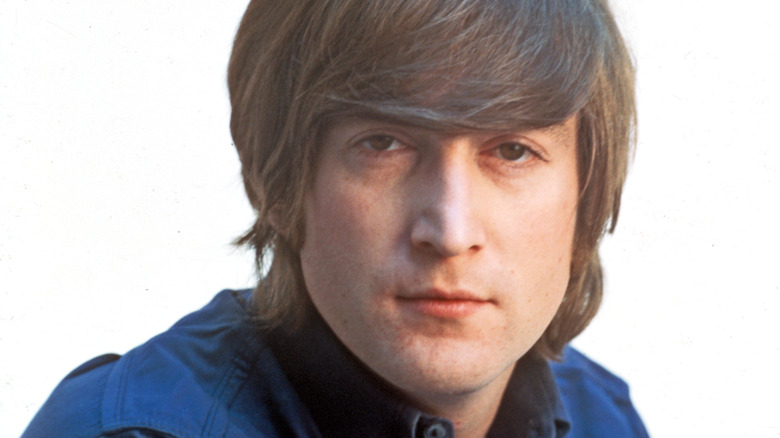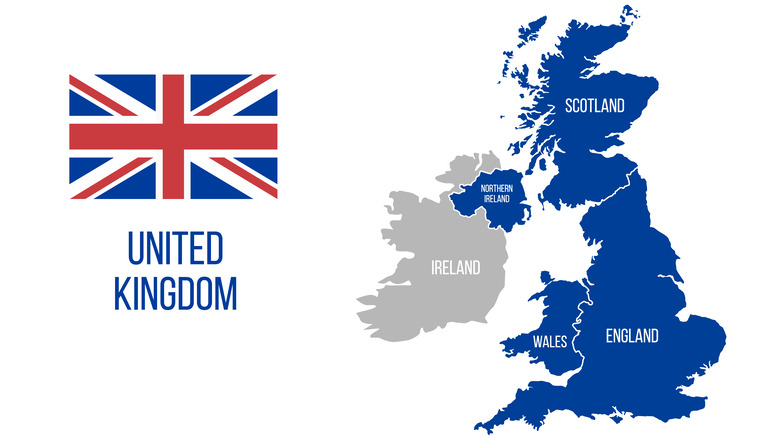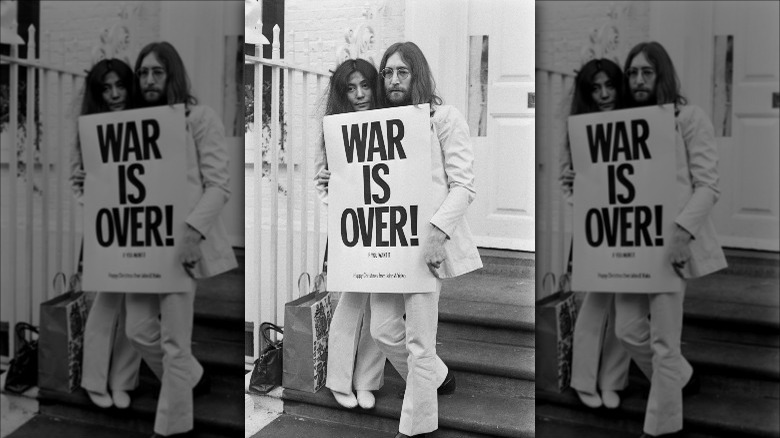John Lennon's Support For Ireland Prompted Government Investigations
John Lennon is as known for his political opinions as he is his music. He vocally opposed the Vietnam War and staged famous peaceful protests wherein he and wife Yoko Ono urged for peace while lying in their bed. President Richard Nixon even worried that Lennon and Ono would affect the 1972 election. Upon moving to the United States after the breakup of the Beatles, the U.S. government was hesitant to grant him a green card. This put him at risk of deportation until the courts finally granted it in 1976 (per UDiscoverMusic).
Lennon held strong opinions regarding political issues in his home country of the United Kingdom as well. As the Beatles continued to release chart-topping albums, British and Irish relations were in a dark period after decades of strain. History explains that this era, known as the "Troubles," began in the late 1960s and lasted through the 1990s. At the center of the "Troubles" was the Irish Republican Army (IRA).
Northern Ireland became part of the United Kingdom in the 1920s
According to Britannica, war between the British and the Irish occurred from 1919 to 1921 as Irish nationalists sought independence from the United Kingdom. The occasionally violent Irish Republican Army (IRA) grew from these years. The Irish island then split into the Irish Free State (first a dominion of the British Empire, but independent by 1949) and Northern Ireland, which remained part of the U.K. When the "Troubles" began in 1969, the IRA split into two sections: one peaceful, and one much less peaceful. The less peaceful of the two gained prominence. Throughout the three decades of "Troubles," the IRA set off bombs around Northern Ireland and England which killed around 1,800 (per History).
Irish Central explains that John Lennon's Irish heritage was vague, but he believed that his father was Irish. What was not vague was his support for a united Ireland. His solo music conveyed his opinion that the entire Irish island should be independent from the U.K. However, such support sparked investigations.
Yoko Ono denies John Lennon sent money to the IRA
In 2000, former British intelligence officer David Shayler alleged that some MI5 documents revealed financial support to the IRA from John Lennon. Though Lennon was known to be anti-war, he seemingly sympathized with the IRA rather than the British forces in the Bloody Sunday incident in 1972. His song "The Luck of the Irish" adds to the evidence (per The Guardian).
American and British government files on Lennon have long been a hot topic. Another report from The Guardian explained that President Richard Nixon's administration asked for an investigation on him. Therefore, the MI5 sent documents to the FBI. In 2000, a U.S. court ordered the FBI to release some of their information just weeks before speculation regarding Lennon's IRA ties arose. This added to suspicions. However, shortly after Shayler's statements, Yoko Ono denied that Lennon sent money to the IRA. "My husband did not give money to the IRA. My husband gave money ... when it was asked for by people who were in need," she stated (per The Guardian). Some of that money was to Ireland, but not the IRA.


